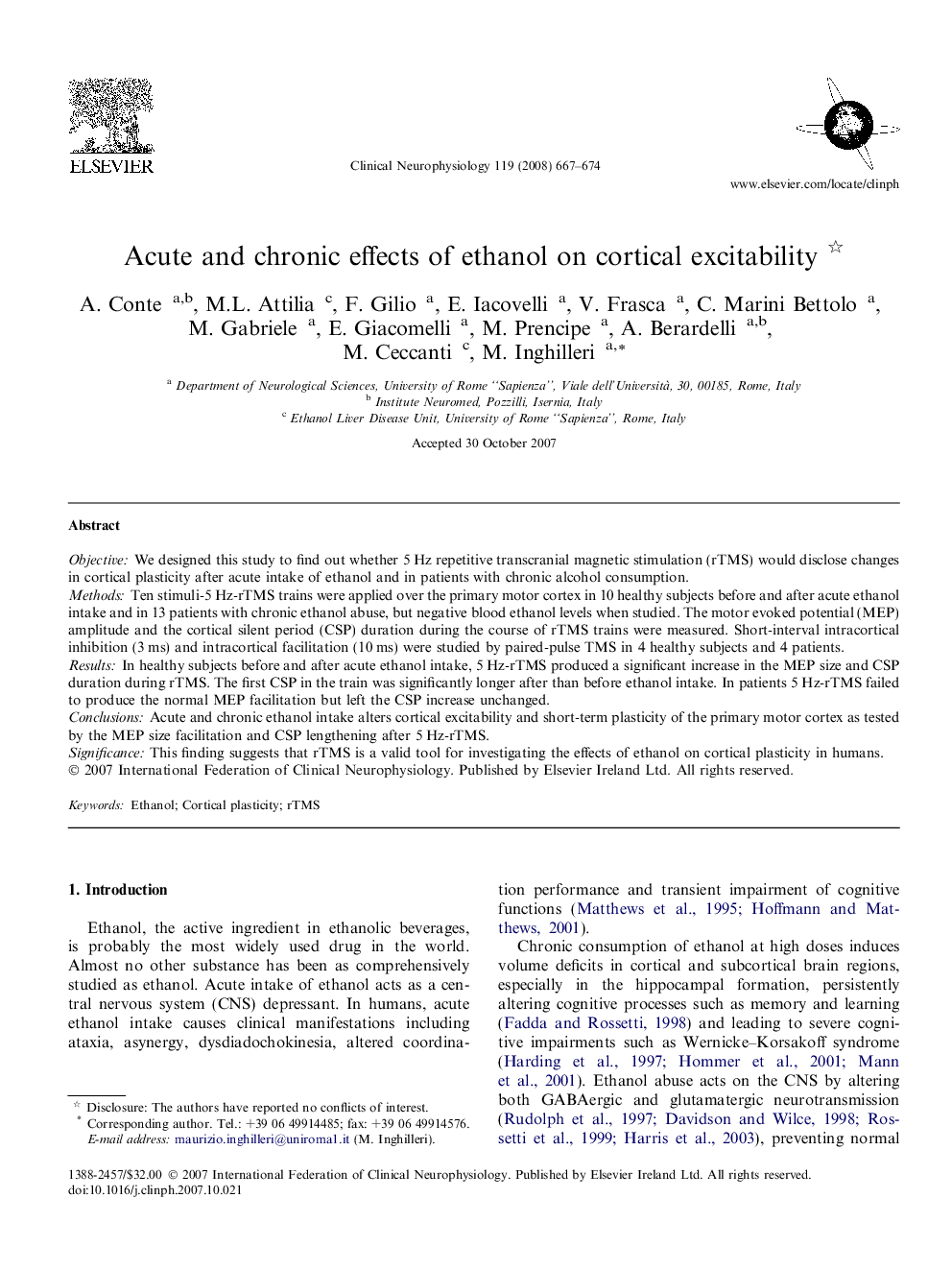| Article ID | Journal | Published Year | Pages | File Type |
|---|---|---|---|---|
| 3046601 | Clinical Neurophysiology | 2008 | 8 Pages |
ObjectiveWe designed this study to find out whether 5 Hz repetitive transcranial magnetic stimulation (rTMS) would disclose changes in cortical plasticity after acute intake of ethanol and in patients with chronic alcohol consumption.MethodsTen stimuli-5 Hz-rTMS trains were applied over the primary motor cortex in 10 healthy subjects before and after acute ethanol intake and in 13 patients with chronic ethanol abuse, but negative blood ethanol levels when studied. The motor evoked potential (MEP) amplitude and the cortical silent period (CSP) duration during the course of rTMS trains were measured. Short-interval intracortical inhibition (3 ms) and intracortical facilitation (10 ms) were studied by paired-pulse TMS in 4 healthy subjects and 4 patients.ResultsIn healthy subjects before and after acute ethanol intake, 5 Hz-rTMS produced a significant increase in the MEP size and CSP duration during rTMS. The first CSP in the train was significantly longer after than before ethanol intake. In patients 5 Hz-rTMS failed to produce the normal MEP facilitation but left the CSP increase unchanged.ConclusionsAcute and chronic ethanol intake alters cortical excitability and short-term plasticity of the primary motor cortex as tested by the MEP size facilitation and CSP lengthening after 5 Hz-rTMS.SignificanceThis finding suggests that rTMS is a valid tool for investigating the effects of ethanol on cortical plasticity in humans.
